Historical events on May 3

MAY 3, 1947
A new Constitution of Japan went into effect, providing for a parliamentary system of government, guaranteeing certain fundamental rights, and relegating the Japanese monarchy to a purely ceremonial role.
The Constitution of Japan is the supreme law of Japan. Written primarily by American civilian officials during the occupation of Japan after
Read More
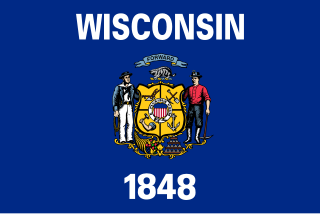
MAY 3, 1845
A long-running feud between two towns in Wisconsin came to a head when a schooner crashed into a bridge; they later merged to form the city of Milwaukee.
Wisconsin is a state in the Great Lakes region of the Upper Midwest of the United States. It borders Minnesota to the
Read More

MAY 3, 2021
Twenty-six people are killed and ninety-eight are injured after an elevated section of the Mexico City Metro collapses.
The Mexico City Metro is a rapid transit system that serves the metropolitan area of Mexico City, including some municipalities in the
Read More
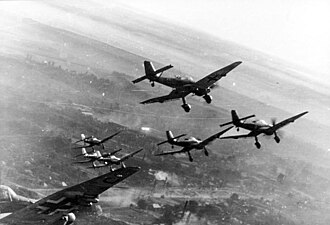
MAY 3, 1942
Second World War: Japanese forces began an invasion of Tulagi and nearby islands in the British Solomon Islands, enabling them to threaten and intercept supply and communication routes between the United States and Australasia.
World War II or the Second World War was a global conflict between two coalitions: the Allies and the Axis powers. Nearly all
Read More
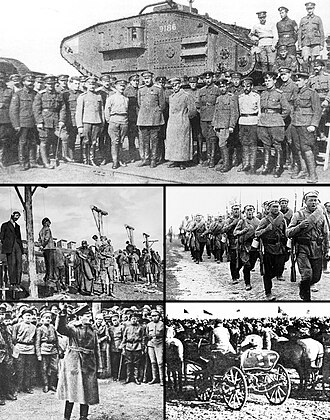
MAY 3, 1920
Russian Civil War: Relying on Red Army troops in neighboring Azerbaijan, the Bolsheviks attempted to stage a coup d'etat in Georgia.
The Russian Civil War was a multi-party civil war in the former Russian Empire sparked by the 1917 overthrowing of the Russian
Read More
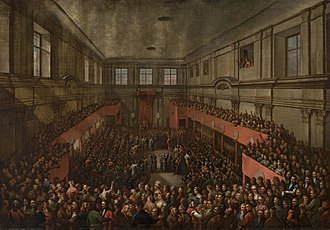
MAY 3, 1791
The Great Sejm of the Polish–Lithuanian Commonwealth ratified the first codified national constitution in Europe.
The Great Sejm, also known as the Four-Year Sejm was a Sejm (parliament) of the Polish–Lithuanian Commonwealth that was held in Warsaw
Read More
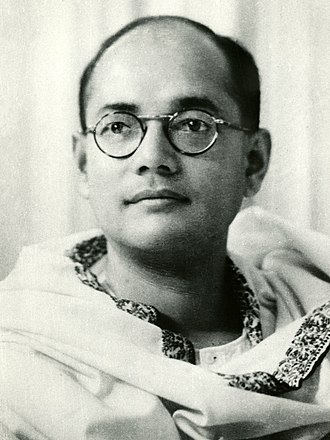
MAY 3, 1939
Subhas Chandra Bose formed the All India Forward Bloc, a faction within the Indian National Congress, in opposition to Gandhi's tactics of nonviolence.
Subhas Chandra Bose was an Indian nationalist whose defiance of British authority in India made him a hero among many Indians, but
Read More
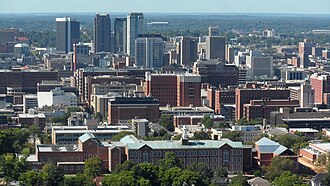
MAY 3, 1963
Police in Birmingham, Alabama, used high-pressure water hoses and dogs against civil-rights protesters, bringing scrutiny on racial segregation in the southern United States.
Birmingham is a city in the north central region of Alabama, United States. Birmingham is the county seat of Jefferson County, Alabama's
Read More
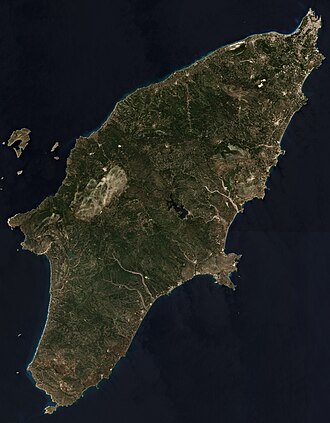
MAY 3, 1481
The largest of a series of earthquakes struck the island of Rhodes, causing an estimated 30,000 casualties.
The 1481 Rhodes earthquake occurred at 3:00 in the morning on 3 May. It triggered a small tsunami, which caused local flooding.
Read More
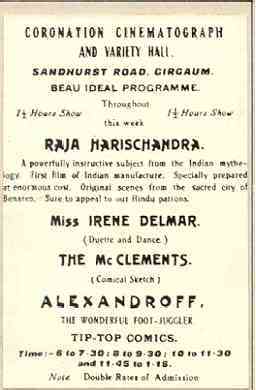
MAY 3, 1913
Raja Harishchandra, the first Indian feature-length film, was released.
Raja Harishchandra is a 1913 Indian silent film directed and produced by Dadasaheb Phalke. It is often considered the first full-length Indian
Read More
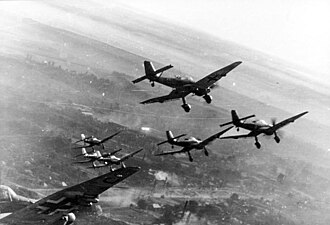
MAY 3, 1945
Second World War: The German ocean liner Cap Arcona, afloat in the Bay of Lübeck with thousands of concentration camp survivors on board, was attacked and sunk by the Royal Air Force.
World War II or the Second World War was a global conflict between two coalitions: the Allies and the Axis powers. Nearly all
Read More
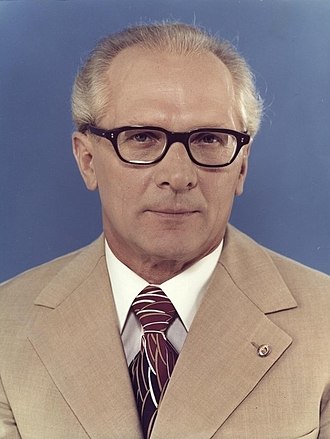
MAY 3, 1971
Erich Honecker became First Secretary of the Socialist Unity Party of Germany, the governing party of East Germany.
Erich Ernst Paul Honecker was a German communist politician who led the German Democratic Republic from 1971 until shortly before the fall
Read More
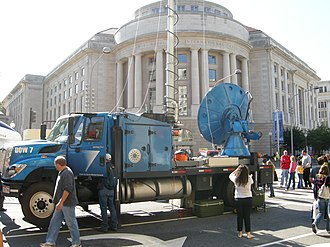
MAY 3, 1999
A Doppler on Wheels team measured the fastest winds recorded on Earth, at 143.6 m/s (321 mph; 517 km/h), in a tornado near Bridge Creek, Oklahoma.
Doppler on Wheels (DOW) is a fleet of quickly deployable truck-mounted weather radars managed by FARM, an American research company affiliated with
Read More
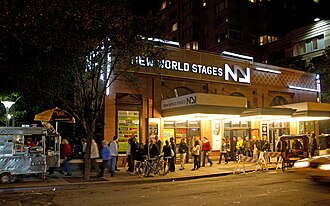
MAY 3, 1960
The Off-Broadway show The Fantasticks premiered, eventually becoming the world's longest-running musical, with 17,162 performances across 42 years.
An off-Broadway theatre is any professional theatre venue in New York City with a seating capacity between 100 and 499, inclusive. These
Read More
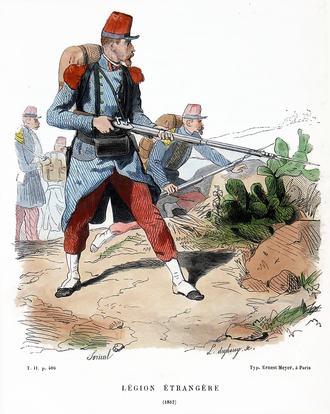
MAY 3, 1855
A group of American mercenaries led by William Walker set sail from San Francisco to conquer Nicaragua.
A mercenary is a private individual who joins an armed conflict for personal profit, is otherwise an outsider to the conflict, and
Read More
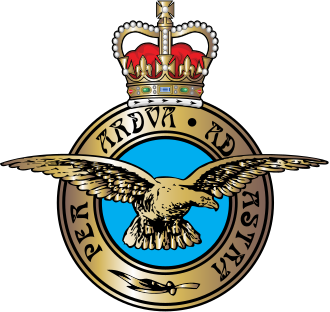
MAY 3, 1915
The oldest Royal Air Force station in continuous operation, RAF Northolt, opened as home to No. 4 Reserve Aeroplane Squadron.
The Royal Air Force (RAF) is the air and space force of the United Kingdom, British Overseas Territories and Crown Dependencies. It
Read More
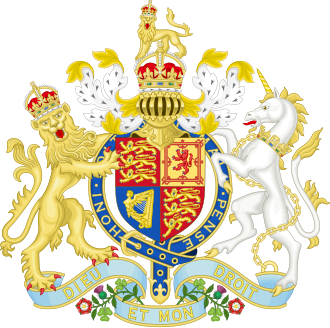
MAY 3, 1921
Under the British Government of Ireland Act, Ireland was partitioned into two self-governing territories, Northern and Southern Ireland.
The Government of Ireland Act 1920 was an act of the Parliament of the United Kingdom. The Act's long title was "An
Read More
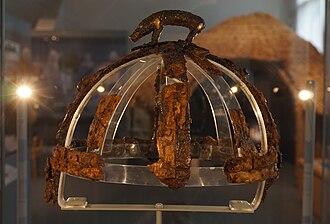
MAY 3, 1848
The Benty Grange helmet (pictured), a boar-crested Anglo-Saxon helmet similar to those mentioned in the contemporary epic poem Beowulf, was discovered in Derbyshire, England.
The Benty Grange helmet is an Anglo-Saxon boar-crested helmet from the 7th century AD. It was excavated by Thomas Bateman in 1848
Read More

MAY 3, 1491
Nkuwu Nzinga, the ruler of the Kingdom of Kongo, was baptised as João I by Portuguese missionaries.
The Kingdom of Kongo was a kingdom in Central Africa. It was located in present-day northern Angola, the western portion of the
Read More

